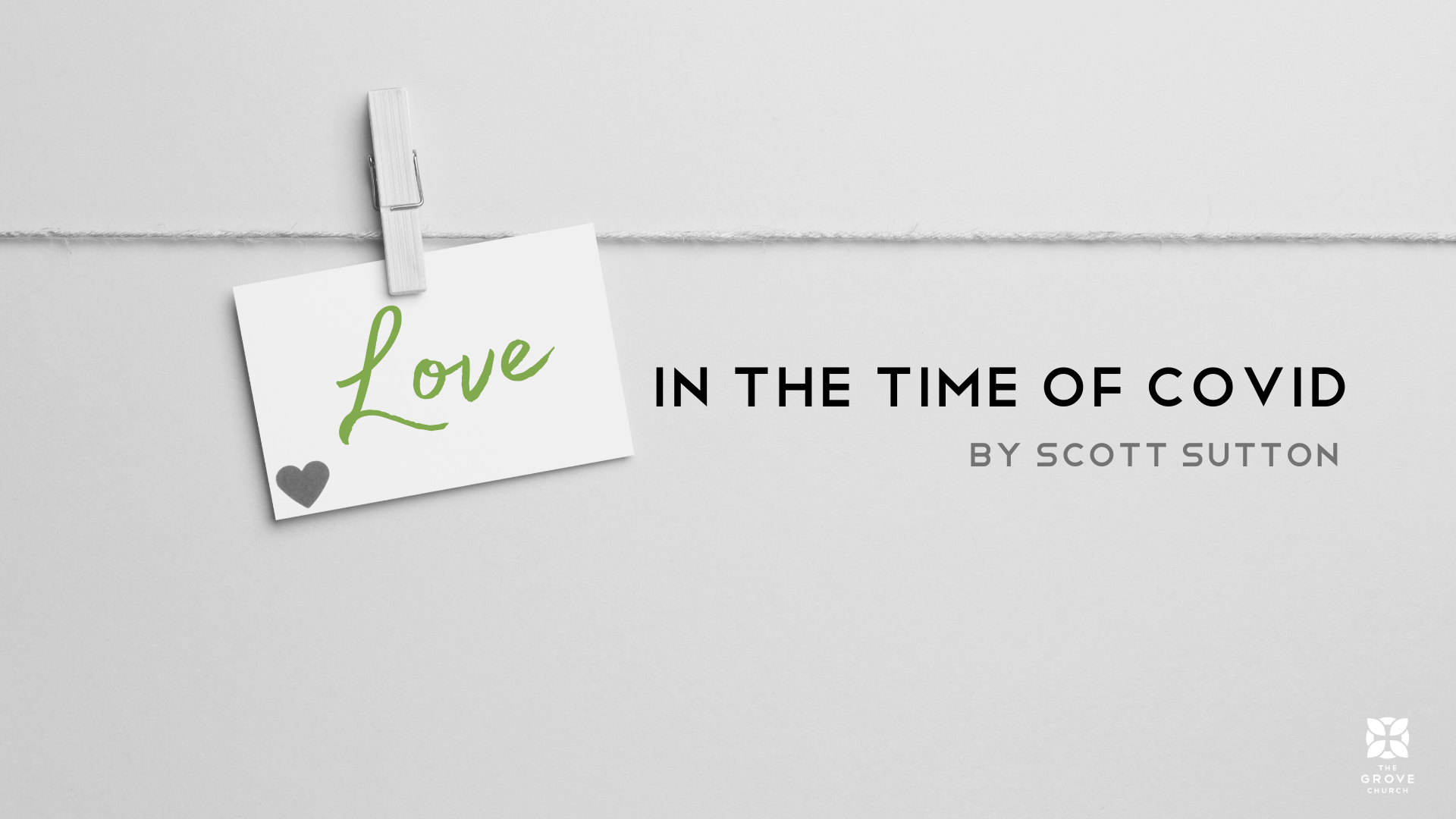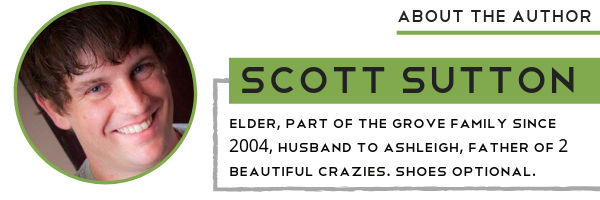
by Scott Sutton
I’ve never lived through a time quite like this.
This is my 40th year. I know people twice as old who say the same.
Sure, we have lived through tragedies – both personal and global. Sure, aspects of this feel familiar. But nothing with quite this blend of circumstances, fallout, and implications for our lives.
As humans we naturally look for patterns in the world around us. I can’t help but do the same in this situation. In some ways, it reminds me of the 2009 Ice Storm that crippled NWA for nearly two weeks and folks couldn’t get food and supplies they needed. In some ways, it reminds me of other epidemics that have lapped our shores or struck us directly (Ebola, HIV/AIDS, H1N1, and others) that caused people to feel a sense of hopelessness and fear of interacting with others. In some ways, it reminds me of the events surrounding September 11, 2001 and the year or so that followed it and how people re-evaluated every aspect of our lives and priorities. In some ways, these events forever changed us. In other ways, we pretty much went back to business as usual after a few months or years…both for better and for worse.
Now, let me be clear: I am neither diminishing the severity of our current pandemic, nor conflating terrorism with disease by drawing this connection. But there are parallels in how these events have shaped our society. In some ways we are entering a new age, a “Time of COVID”, if you will. It will shape us as well as the school-aged generation who are currently quarantined to their homes learning from technology and paperwork…but also learning from us, whether we realize it or not.
What lessons will we impart to this generation? What lessons will we impart to ourselves?
Below follows is three lessons that I hope will guide us and shape this emerging generation through this crisis, especially for those of us whose “true citizenship is heaven” (Philippians 3:20).
Lesson #1: Fear vs Confidence. “For God gave us a spirit not of fear but of power and love and self-control.” 2 Timothy 1:7.
Fear takes on many forms in times like this. It can look like cowering, and it can also look like throwing caution to the wind and ignoring calls for social distancing and precautionary measures. The latter may not appear to be fear, but it is nonetheless berthed from denial which is often a mechanism for coping with some underlying fear. This past weekend, we didn’t do our family tradition of going out to eat on Saturday night. As we broke the news to our kids, my 10-year old son asked, “Is it because you’re afraid?”
…afraid…am I?
I responded with all the right words (social distancing, disease transmission, caring for those with compromised immune systems) which is good, but it didn’t take away this nagging question. Am I afraid? Part of me is. There is a lot of unknown around this virus that can incite fear. And to that part of myself, I have had to speak this verse from 2 Timothy over and over. Christian, do not be afraid! To be afraid of a byproduct of sin’s curse is to acknowledge that sin has power over us. When you find yourself afraid, remind yourself that fear is the biggest threat to the spirit’s ability to work through us with power, love, and self-control.
And lest we become cavalier with this verse in our minds, I would highlight the word “self-control”. In my life, I find that I indulge my impulses way too often. Our American culture encourages this (so long as it isn’t hurting anyone else). In this context, social distancing is an exercise in self-control. And this time can be an incredible opportunity to catch self-indulgent impulses as they pass through our minds and meditate on where they are coming from, why we have them, and how we can find rest in God rather than indulging them.
The world around us may be seized by fear. The church has an opportunity to show the power of confidence.
Lesson #2: Isolation vs Community. “Let us consider how we may spur one another on toward love and good deeds, not giving up meeting together, as some are in the habit of doing, but encouraging one another – and all the more as you see the Day approaching.” Hebrews 10:24-25
Isolation can be physical, but it can also be emotional, mental, relational. For a season (2 weeks? 2 months? Who knows at this point?) we will have to physically isolate ourselves to a large degree. During this time, it will be easy for us to isolate ourselves in those other ways too. In our respective spheres of influence, we must continue reaching out to one another. Not just liking one another’s social media activity, but directly reaching out and asking how they are, if they have any needs, and how we can be praying for one another. Perhaps the 21st century’s greatest gift so far is that we have a dozen channels literally at our fingertips for maintaining community even in the absence of physical meetings. Be creative in how you leverage your channels to keep your community alive and to draw others who may be feeling isolated right now. And once the quarantine is over, let’s be quick to resume physical meetings once again.
The world around us may fall into deeper isolation. The church has an opportunity to show the power of community.
Lesson #3: Blame vs Love. “Love is patient, love is kind. It does not envy, it does not boast, it is not proud. It does not dishonor others, it is not self-seeking, it is not easily angered, it keeps no records of wrongs. Love does not delight in evil but rejoices with the truth. It always protects, always trusts, always hopes, always perseveres.” 1 Corinthians 13:4-7
One of our culture’s tendencies in the past events that I cited at the beginning of this blog has been to assign blame to “others” during those times. We recognize the evil that transpired through those events and it is easier for us to enflesh that evil in a specific person, race, nationality, or group rather than acknowledge that evil and death and suffering are a result of our universal human condition. We are all horribly, horribly sinful and broken. I love my wife more than anyone else, and she is no less sinful and broken than anyone who has directly or indirectly wronged me. When we are able to see the sin and brokenness in the ones we love, we are able to love the ones who we see as purely sinful and broken. When we realize the depths of our own personal sin and brokenness and how God loves us so, so deeply nonetheless, we are able to love anyone.
We can hold our world, national, community, and business leaders accountable for their actions/inactions, but we can never lose our love for humanity. More than our righteous anger, Christians should be known for our love.
The world around us may fall into blame and divisiveness. The church has an opportunity to show the power of love.
Church, we have an opportunity to lead our families, our cites, our workplaces, our faith community, and our world in this time of COVID. Let us not shrink away from this opportunity with spirits of fear, isolation, and blame. Let us rise to the opportunity with spirits of confidence, community, and love. These are the ways that Christianity has changed the world over the past 2000 years and how we will change it for all the years to come.

